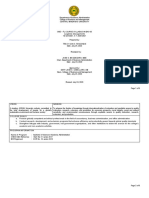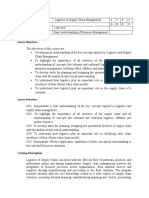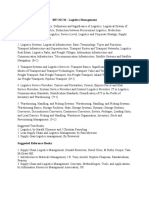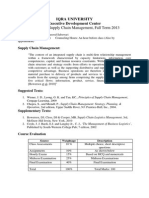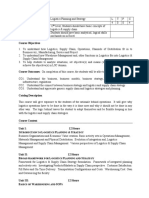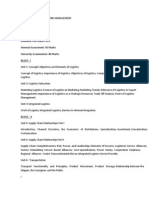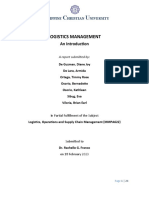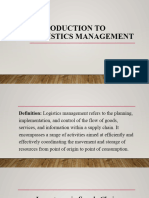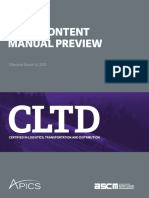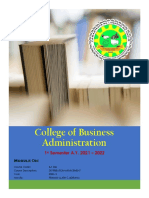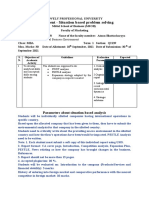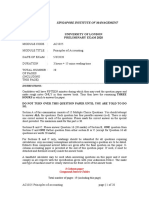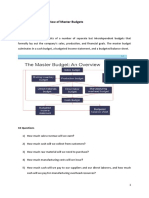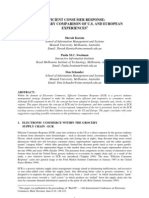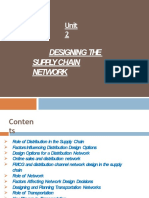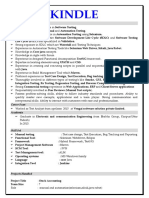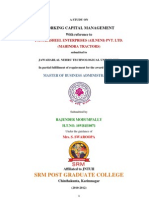0% found this document useful (0 votes)
98 views1 pageOperation Syllabus
This document outlines the course outcomes and units for the logistics and supply chain management course OPRM505. The course aims to (CO1) develop technical competence in logistics management, (CO2) develop knowledge of functional components and their interrelationships within integrated supply chains, and (CO3) distinguish logistic solutions to control unconventional supply chains. The six units cover topics like the role of technology in fulfillment, physical distribution and transportation, logistics outsourcing, inventory management, routing decisions, and performance measurement.
Uploaded by
Sainath ReddyCopyright
© © All Rights Reserved
We take content rights seriously. If you suspect this is your content, claim it here.
Available Formats
Download as PDF, TXT or read online on Scribd
0% found this document useful (0 votes)
98 views1 pageOperation Syllabus
This document outlines the course outcomes and units for the logistics and supply chain management course OPRM505. The course aims to (CO1) develop technical competence in logistics management, (CO2) develop knowledge of functional components and their interrelationships within integrated supply chains, and (CO3) distinguish logistic solutions to control unconventional supply chains. The six units cover topics like the role of technology in fulfillment, physical distribution and transportation, logistics outsourcing, inventory management, routing decisions, and performance measurement.
Uploaded by
Sainath ReddyCopyright
© © All Rights Reserved
We take content rights seriously. If you suspect this is your content, claim it here.
Available Formats
Download as PDF, TXT or read online on Scribd
/ 1









